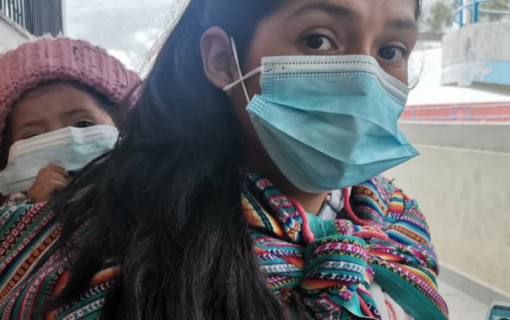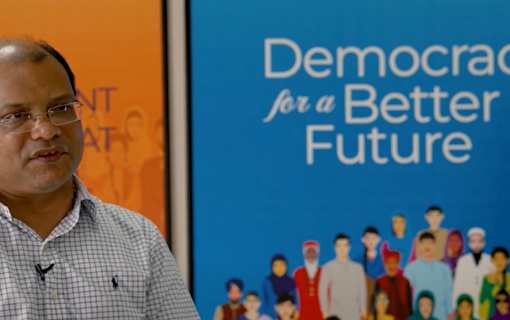Pre-Election Assessment, Moldova: August, 1993
EXECUTIVE SUMMARY
In August of 1993, IFES fielded a three-member team with expertise in constitutional law, public administration and international technical assistance to assess the evolving electoral and political process in Moldova. The team travelled to Chisinau at the invitation of the Vice President of the Parliament of Moldova, Victor Puscas.
The purpose of the IFES visit was threefold: (1) to examine opinions with regard to the Sovietstyle election system still in force at the time of the team's visit; (2) to assess efforts to reform the Moldovan electoral system in anticipation of new Parliamentary elections; and, (3) to propose opportunities for collaboration with Moldovan electoral officials and non-partisan civic organizations.
The IFES project team consisted of the following members:
James L. Huffman, Acting Dean of the Lewis and Clark Law School in Portland, Oregon. Mr. Huffman is an expert in international law and has written widely on constitutional issues.
Ray S. James, Principal Director of Elections, Kansas City Board of Elections. Mr. James formerly served as Director of the Division of Elections in the Office of the Secretary of State of Missouri.
Team Leader and Report Editor:
Christopher S. Siddall, IFES Senior Program Officer for East-Central Europe and former Soviet Union. For the past three years, Mr. Siddall has implemented civic education and technical assistance projects throughout the former Soviet Union and Eastern Europe.
The IFES team held meetings with many members of Parliament including the President and Vice Chairman of the Parliament of Moldova, the chairmen of the Parliamentary committees on Foreign Relations, Human Rights and Relations between Nationalities, Local Self-Administration and Local Economies. Discussions were also held with top advisors to the President of Moldova, Mircea Snegur.
The team was fortunate to exchange views concerning the Moldovan election system with the former Chairman of the Central Election Commission, Vladimir Kiktenko, and representatives of many of the political parties and civic movements active in Moldova as well as a broad cross section of the national print and electronic media, including the director of the national television.
The team traveled to Tiraspol to meet with top representatives of the separatist local government on the left bank of the Dniester River, known as the Transdniester. Though the team did not have the opportunity to visit with representatives of the Gagauz minority who have also pressed for some degree of autonomy from the Moldovan Government in Chisinau, their claims and their potential impact on new elections in Moldova have been taken into consideration in discussions with officials in the capital.
While in Moldova the team had access to the working draft of the Constitution and various drafts of the election law. These drafts were analyzed in overview form in the preliminary IFES summary of recommendations issued on September 14, 1993.
A month after the release of the first IFES report, the Parliament of Moldova adopted a new election law which discarded many of the Soviet features of the 1989 election law. Elections based entirely on proportional representation to a Parliament, almost three-fourths smaller than the former Moldavian SSR Supreme Soviet, were called for February 27, 1994.
The adoption of the new progressive election law and accompanying legislation has prepared the ground for Moldova to take great steps toward democratic government. Accompanying legislation mandating changes to the laws on political parties and socio-political organizations, the Constitution of Moldova, and the criminal code have also outlined a good framework for the elections. Translations and analysis of this accompanying legislation are included in this report. An unofficial election calendar compiled by IFES staff is also attached.
By analyzing the election law and accompanying legislation and focusing on areas of possible technical assistance to Moldova in the long and short-term, this document should serve as a resource for not only Moldovan election officials, political parties, civic groups, members of the media but also the international donor community which may be requested by the Moldovans to provide assistance to Moldova or observe the upcoming elections on February 27, 1994.
Read the Full Report.









